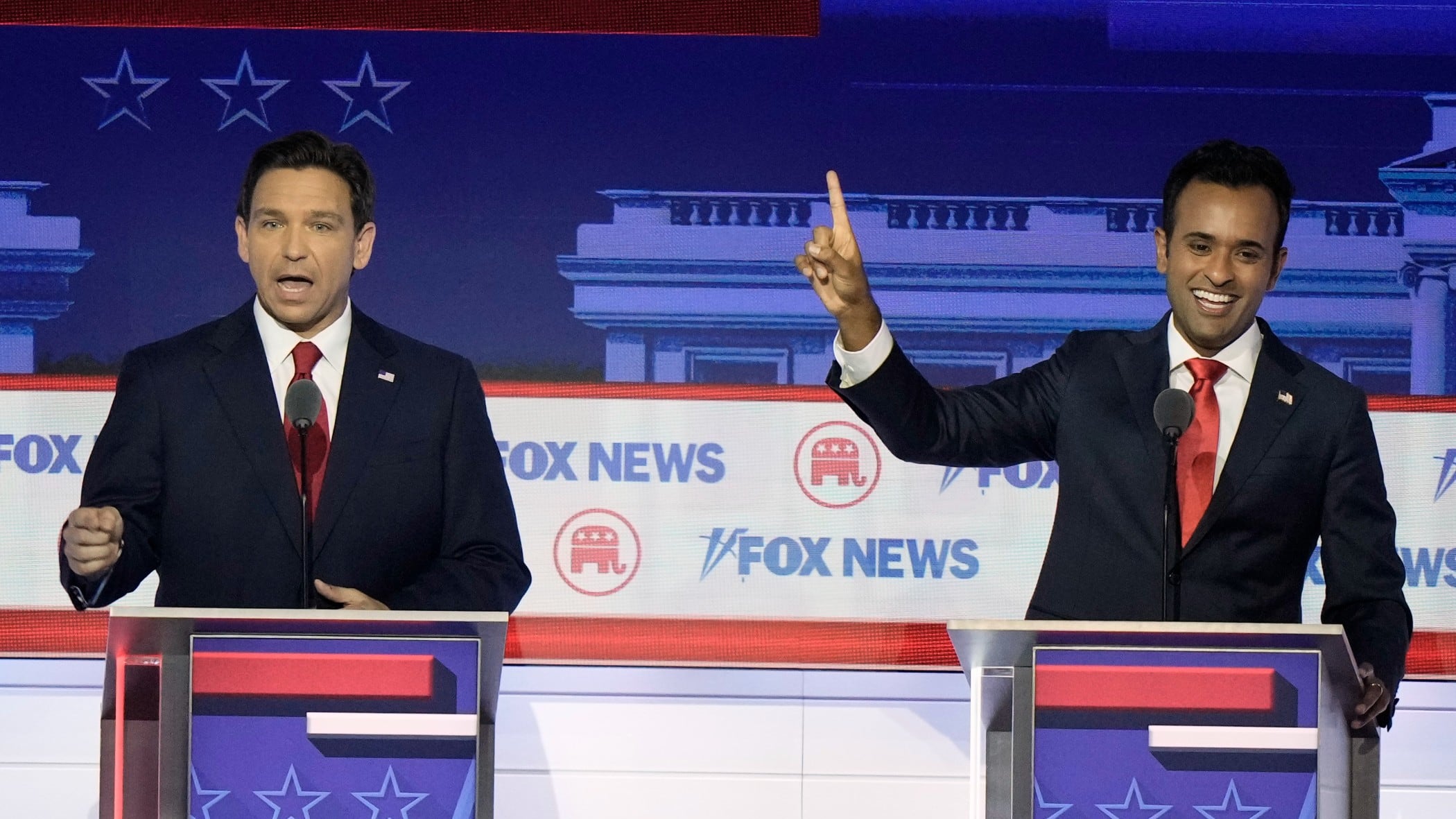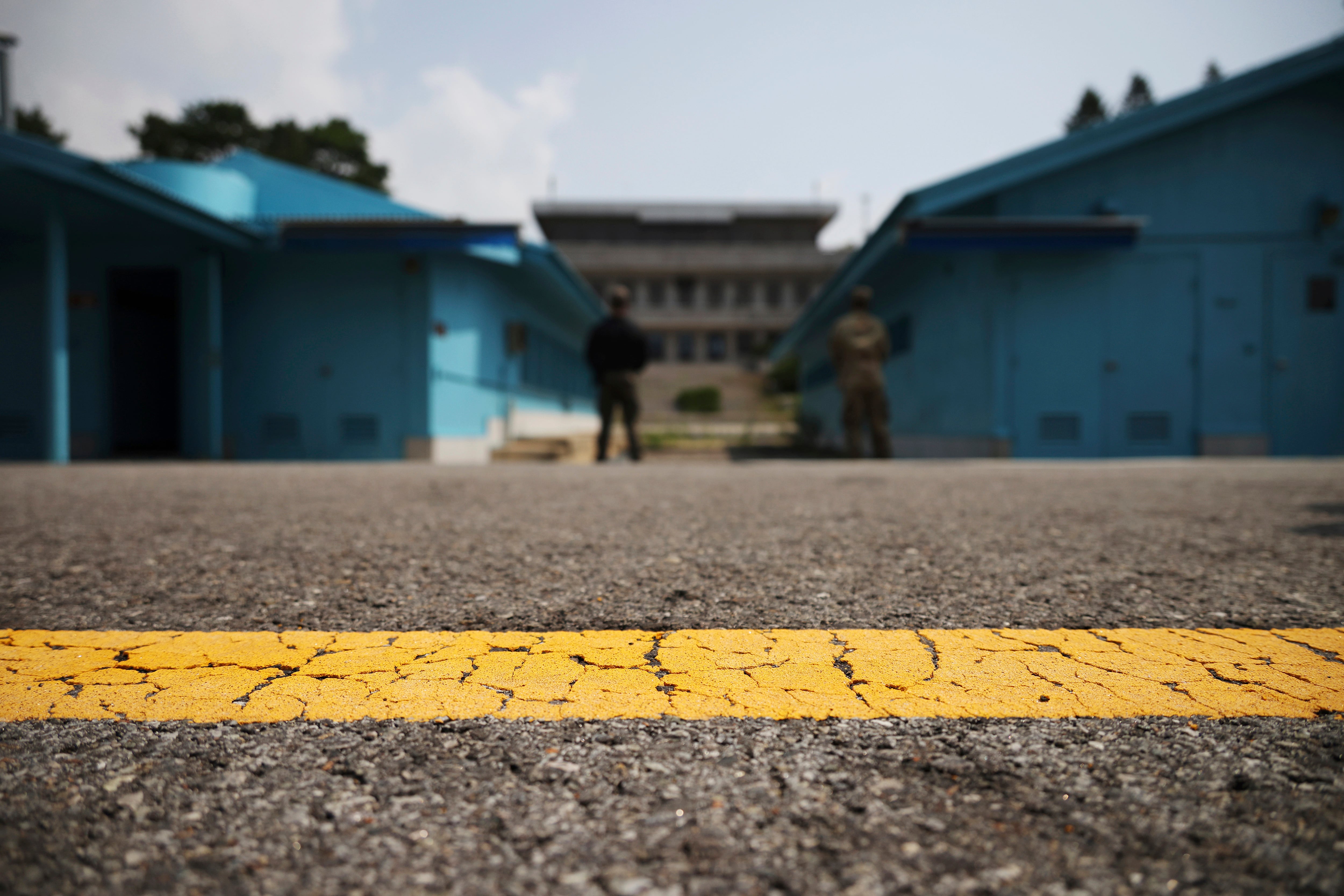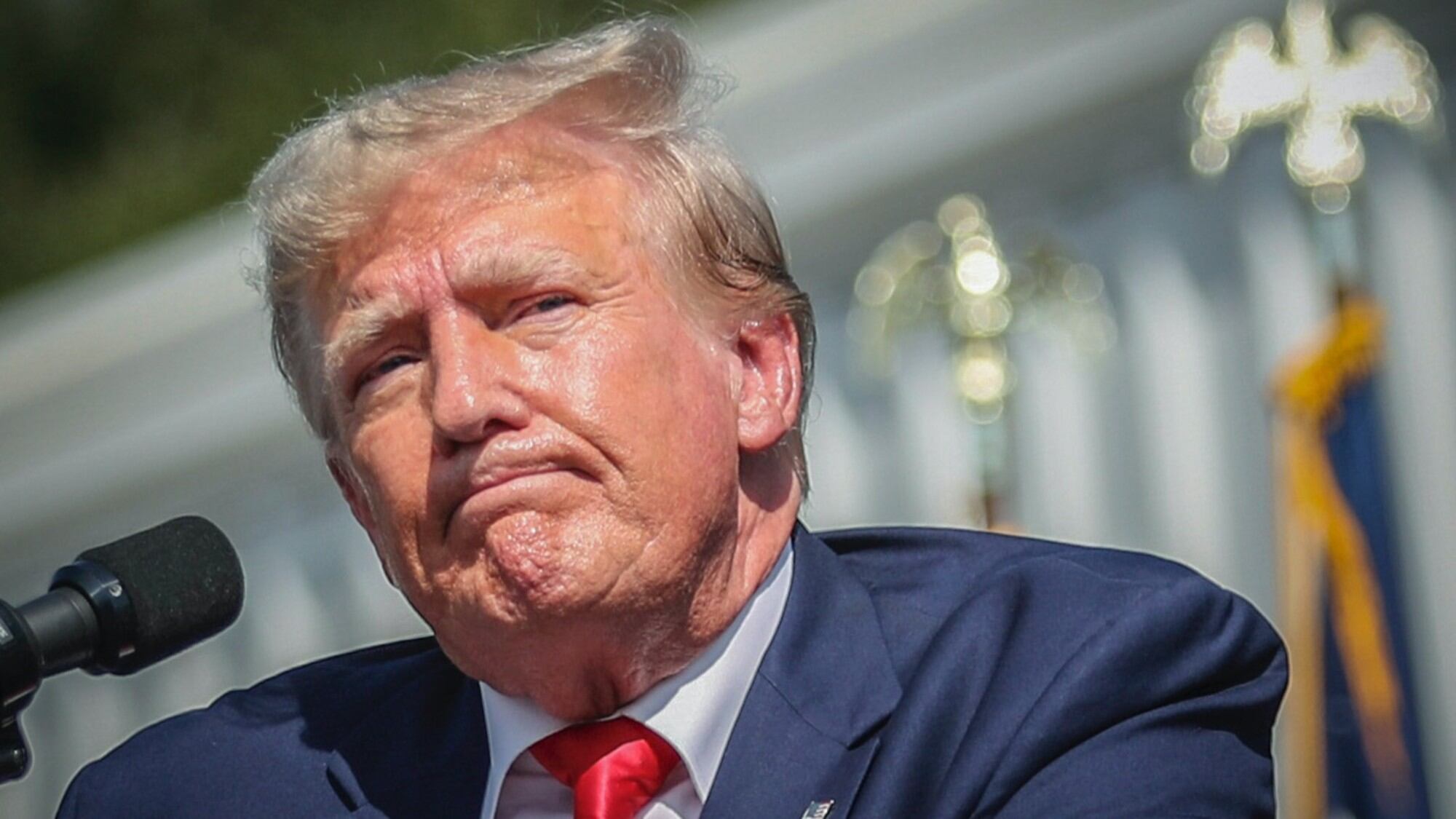By Chris Megerian and Terry Tang
Declaring it good “not only for Arizona but for the planet,” President Joe Biden on Tuesday signed a national monument designation for the greater Grand Canyon, turning the decades-long visions of Native American tribes and environmentalists into reality.
Coming as Biden is on a three-state Western trip, the move will help preserve about 1,562 square miles (4,046 square kilometers) just to the north and south of Grand Canyon National Park. It was Biden's fifth monument designation.
Tribes in Arizona have been pushing the president to use his authority under the Antiquities Act of 1906 to create a new national monument called Baaj Nwaavjo I’tah Kukveni. “Baaj Nwaavjo” means “where tribes roam,” for the Havasupai people, while “I’tah Kukveni” translates to “our footprints,” for the Hopi tribe.
“Preserving these lands is good, not only for Arizona but for the planet," said Biden, who spoke with a mountain vista behind him, using a handheld mic against the wind and wearing a baseball cap and dark sunglasses against the sunshine and heat. "It's good for the economy. It's good for the soul of the nation."
Biden likened the designation to his administration’s larger push to combat climate change and noted this summer's extreme heat, which has been especially punishing in places like Phoenix. He said extreme heat was responsible for more deaths than other natural disasters like floods and hurricanes combined but added, "None of this need be inevitable.”
The president spoke in an area that is between Pinyon Plain Mine, which is being developed and has not opened, and Red Butte, a site culturally significant to the Havasupai and Hopi tribes. The audience included a number of people in traditional native dress, including feathered headbands and hats.
Biden said the new designation would see the federal government live up to its treaty obligations with Native American tribes after many were forced in decades past from their ancestral homes around the Grand Canyon as officials developed the site of the national park.
“At a time when some seek to ban books and bury history, we’re making it clear that we can’t just choose to learn what we want to learn,” Biden said, a reference to his frequent criticism of some top Republicans who have sought to impose limits on school libraries, citing parental complaints about explicit material.
The president also criticized adherents of the “extremism” of former President Donald Trump's “Make America Great Again” movement for opposing his administration's effort to fight climate change.
The political stakes are high. Arizona is a key battleground state that Biden won narrowly in 2020, becoming the first Democrat since Bill Clinton in 1996 to carry it. And it's one of only a few genuinely competitive states heading into next year's election. Winning Arizona would be a critical part of Biden's efforts to secure a second term.
Later Tuesday, Biden flies to New Mexico, considered safe for Democrats in 2024, and he will visit the Republican stronghold of Utah after that.
Republican lawmakers and the mining industry have touted the area's economic benefits and argued that mining is a matter of national security.
Reps. Bruce Westerman, chairman of the House Natural Resources Committee, and Paul Gosar, an Arizona Republican who also holds a leadership position on the committee, released a letter to Biden on Tuesday, criticizing the designation and suggested it “would permanently withdraw the richest and highest-grade uranium deposits in the United States from mining—deposits that are far outside the Grand Canyon National Park.”
The Interior Department, reacting to concerns over the risk of contaminating water, enacted a 20-year moratorium on the filing of new mining claims around the national park in 2012.
Existing mining claims will not be affected by this designation, senior Biden administration officials counter. Furthermore, the monument site encompasses around 1.3% of the nation’s known and understood uranium reserves. Officials say there are significant resources in other parts of the country that will remain accessible.
Invitees at Tuesday's event included Yavapai-Apache Nation Chairwoman Tanya Lewis, Colorado River Indian Tribes Chairwoman Amelia Flores, Navajo President Buu Nygren and Havasupai Tribal Councilwoman Dianna Sue White Dove Uqualla.
Uqualla is part of a group of tribal dancers who performed a blessing at the designation ceremony.
“It’s really the uranium we don’t want coming out of the ground because it’s going to affect everything around us — the trees, the land, the animals, the people,” Uqualla said. “It’s not going to stop.”
Arizona Gov. Katie Hobbs said “the Grand Canyon is known as one of the seven natural wonders of the world, but we know it for so much more.” In his own remarks, Biden mistakenly referred to the Grand Canyon as one of the nine wonders of the world, but went back and corrected himself.
“There’s no national treasure, none, that is grander than the Grand Canyon,” the president said.
Opponents of establishing a monument have argued it won’t help combat a lingering drought and could prevent thinning of forests and stop hunters from keeping wildlife populations in check. Ranchers in Utah near the Arizona border say the monument designation would strip them of privately owned land.
In 2017, Democratic President Barack Obama backed off a full-on monument designation. The idea faced a hostile reception from Arizona’s Republican governor and two senators. Then-Gov. Doug Ducey threatened legal action, saying Arizona already has enough national monuments.
The landscape of Arizona's political delegation has since changed considerably. Hobbs, Democratic Sen. Mark Kelly and Sen. Kyrsten Sinema, an independent, are all on board.
Mining companies and the areas that would benefit from their business remain opposed. Buster Johnson, a Mohave County supervisor, said the monument proposal feels solely politically driven and there should have been another hearing on the matter. He doesn't see the point of not tapping into uranium and making the country less dependent on Russia.
“We need uranium for the security of our country,” Johnson said. “We're out of the game.”
No uranium mines are operating in Arizona, although the Pinyon Plain Mine, just south of Grand Canyon National Park, has been under development for years. Other claims are grandfathered in. The federal government has said nearly a dozen mines within the area that has been withdrawn from new mining claims could still potentially open.
After Arizona, Biden will go on to Albuquerque on Wednesday, where he will talk about how fighting climate change has created new jobs. During a visit to Salt Lake City on Thursday, the president will mark the first anniversary of the PACT Act, which provides new benefits to veterans who were exposed to toxic substances. He’ll also hold a reelection fundraiser in each city.











